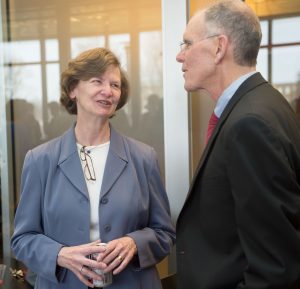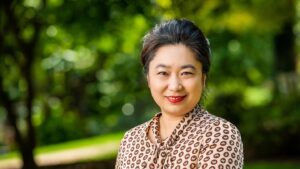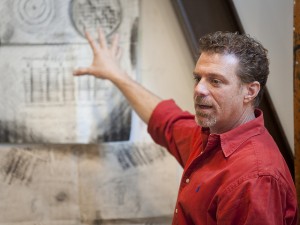Lafayette Humanities Center to host Zoom panel discussion for second annual Easton Book Festival
By Stella Katsipoutis-Varkanis
It’s an affair not to be missed by book lovers: On Nov. 8 at 4 p.m., Lafayette College Humanities Center will be sponsoring and hosting an informal Zoom panel discussion, “Lafayette on the Book,” in support of the second annual Easton Book Festival. The event—organized and moderated by Eric Ziolkowski, Helen H.P. Manson Professor of Bible—will feature four Lafayette faculty members discussing the ways in which they approach the “book” as a concept, literary medium, archival document, and material object, taking into account both Western and East Asian perspectives. A question-and-answer session with viewers will follow.
You can learn more about the panel here and access the discussion here at the time of the event.
The festival—which aims to inform, educate, enrich, and inspire people of all backgrounds in the Lehigh Valley community through free literary programs—is being held entirely online this year due to the COVID-19 pandemic. Through Nov. 15, dozens of authors, speakers, and illustrators will be coming together to present virtual readings of, and discussions about, their works. View the complete schedule here.
Meet the Panelists
 June Schlueter, Charles A. Dana Professor Emerita of English
June Schlueter, Charles A. Dana Professor Emerita of English
“Shakespeare’s First Folio: The Gift Two Fellow Players Gave Him—and Us”
Across the world, Shakespeare is held in high esteem, considered by many to be the greatest writer of all time. Yet without the First Folio of his plays that his friends John Heminge and Henry Condell compiled and had published in 1623, Shakespeare’s place in literary and cultural history may not have been so secure. Schlueter will explain why the First Folio was not only a gift to Shakespeare but a gift to all of us.
 Xu Ma, assistant professor of religious studies
Xu Ma, assistant professor of religious studies
“A Biography of the Chinese Book: From Oracle Bones to E-Publications”
Few cultures, if any, have had a more enduring written tradition and book culture than those of China. The history of China is arguably conterminous with the formation of an “empire of the text.” Ma’s discussion will sketch the 4,000-year life story of Chinese books/non-books, including animal bones, bronze vessels, bamboo clips, stone drums, inscribed monuments, silk manuscripts, pagoda-shaped sutras, printed books, and e-books. These protean carriers of nonalphabetical scripts invite us to reconceptualize books as both transcendental intellectual entities and transforming material objects, and reconsider the relationship of people and text in terms of the dialectic between constraints transgressed and freedoms bridled.

Jim Toia, director of community-based teaching “The Book as Art Form”
For generations artists have regarded the “art book” as an alternative approach to the art-making process and as a familiar structure in which to situate their work. As a young artist, Toia desired an audience’s contact with an object to advance the intimacy between object and observer, a condition the museum and gallery world would not permit. The book format demanded the necessity of contact. One could not enter the artist’s work without embracing it, thus breaking institutional rules of decorum and inviting an intimacy seldom experienced within the sterility of the gallery space. Here, Toia will take the audience through the development of the art book as an art form and highlight a number of works that helped usher his early work into the art world.
 Thomas Lannon, director of special collections and college archives
Thomas Lannon, director of special collections and college archives
“What’s So Special About Special Collections?”
What kind of stories can be told about the books we own and value? What’s the difference between these valuable books and archival collections often described as old and dusty? In this talk, Lannon will describe how special collections professionals work to encourage and facilitate new connections with texts and collections that support a broad range of values and virtues in society.
 June Schlueter, Charles A. Dana Professor Emerita of English
June Schlueter, Charles A. Dana Professor Emerita of English Xu Ma
Xu Ma
